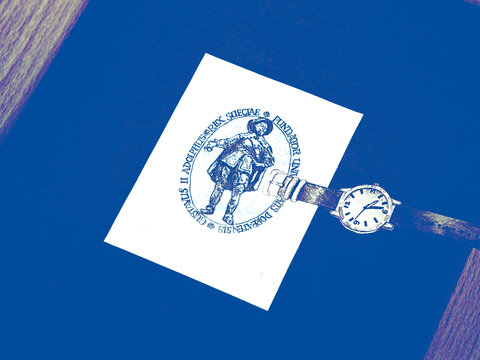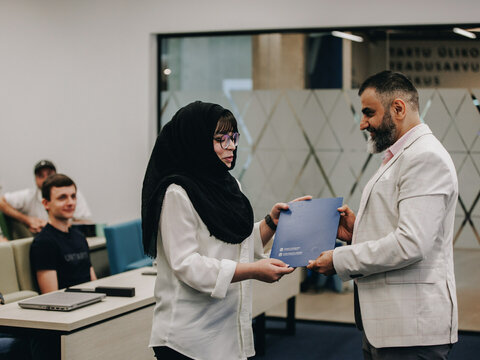Economic Policymaking in the Digital Age
-
Credits
15 ECTS (390 hours)
Form of study
Partially web-based
Location
Tartu
Fee
1920 EUR
Teachers
The program is suitable for managers, consultants, public sector officials (eg public sector special subject managers), and master's students who must have completed a bachelor's degree or equivalent.
Study group
Management and administration
Program language
English
Purpose:
The objective of the program is to provide a broad-based knowledge of the possibilities and limitations of technology application in the development and implementation of public sector economic policies.
Target group:
Studies and teaching takes place in appropriate classrooms, which have the required teaching equipment and meet the health and safety requirements.
Outcome:
A successful graduate of the program:- understands the effects of technological developments in public sector governance and economic policy-making;
- can see the possibilities of applying technologies to solve complex problems in specific areas of the public sector;
- has an overview of various challenges and risks of digital solutions;
- can estimate the cost of investment in digital technologies;
- acquires contacts with technology companies and researchers from other fields (medicine, IT, robotics, environment).
Starting conditions:
Academic top-level (professor, visiting professor, lecturer), strategic manager (experience), practical skills (project management training).
Teachers:
The program is suitable for managers, consultants, public sector officials (eg public sector special subject managers), and master's students who must have completed a bachelor's degree or equivalent.
Location info:
Tartu linn The program takes place in session training in Tartu University's Delta Building with web support in the Moodle environment. In session learning, teaching takes place through a combination of video lectures and webinars, supported by independent readings and assignments in the Moodle environment.
Learning environment:
Studies and teaching takes place in appropriate classrooms, which have the required teaching equipment and meet the health and safety requirements.
Schedule and further information:
In the academic year 2024/2025, the program consists of five subjects in the autumn semester, which are read together with the Master's program of Contemporary Economy and Entrepreneurship in Economic Policy-making: SVMJ.08.009 eEstonia Masterclass
SVMJ.08.010 Digital Public Finance and Service Development
SVMJ.08.011 Big Data Analytics and Real-Time Economic Policymaking
SVMJ.08.012 International Digital Regulation, Data Protection and Competition Policy
SVMJ.08.013 Economics of Cyber Security and Defense
Requirements to complete:
According to the conditions for passing substances. In order to obtain the microcredit program certificate, it is necessary to successfully pass 100% of subjects with a total volume of 15 ECTS.
Document to be issued:
Certificate of completion/Certificate of attendance
Tax refund:
Yes
Registration information:
Admission is based on 1) a bachelor's degree or an equivalent level of education and 2) submission of a motivation letter.Please enter a short letter of motivation in the "additional information or questions regarding participation in the course" field when registering for the course. Please include your educational and professional background and a brief explanation of why you would like to participate in the program.
If you have completed your previous studies outside the University of Tartu, it is necessary to submit a document proving your education. Please send the proof of education to anneli.kutt@ut.ee by the deadline for registering for the course.
Registration deadline:
21.08.2024
Additional information:
Anneli Kütt, anneli.kutt@ut.ee, +372 +372 737 6318
Program code:
SVMJ.TK.079
General contact:
Similar lifelong learning courses
Time of occurrence:
01.09.2024
-
31.05.2025
Credits: 12 ECTS (312 hours)
Form of study: Partially web-based
Language: Estonian
Time of occurrence:
10.02.2025
-
31.01.2026
Credits: 15 ECTS (390 hours)
Form of study: Partially web-based
Language: Estonian
Time of occurrence:
08.10.2024
-
03.12.2024
Credits: 2 ECTS (52 hours)
Form of study: Partially web-based
Language: Estonian
Time of occurrence:
10.02.2025
-
20.06.2025
Credits: 15 ECTS (390 hours)
Form of study: Partially web-based
Language: English
Time of occurrence:
26.09.2024
-
02.11.2024
Credits: 4.5 ECTS (120 hours)
Form of study: Partially web-based
Language: Estonian





